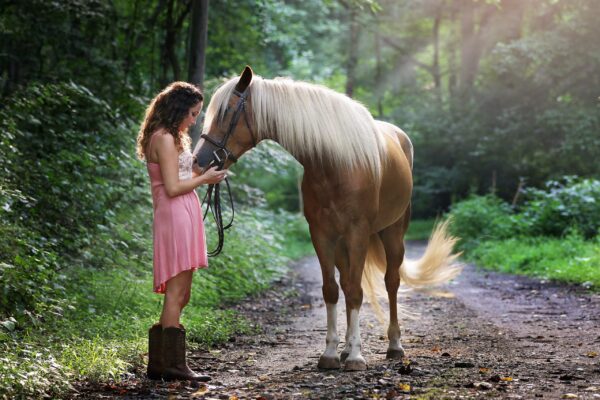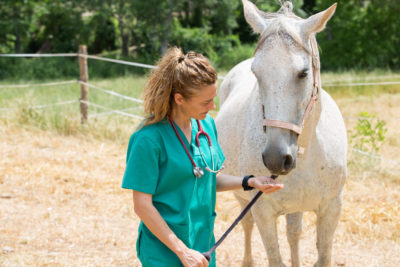Having any sort of animal is a huge responsibility – their life and wellbeing is in your hands, after all. However, some animals are easier to care for than others. Horses, though, are very high maintenance animals. If you’re looking into getting a horse, it’s crucial to ensure that you know what it takes to be a responsible horse owner.
Horses are a much bigger responsibility than house pets in terms of money, time commitments, and care. But if you’re truly committed to your horse and you love them, all the responsibilities that come with owning a horse are more than worth it.

We can’t get into everything you need to know in order to be a responsible horse owner here – this is a blog post, after all, not a book. But we can give you some key aspects of ways you can be a responsible horse owner to get you started on this exciting chapter. If you have any questions or would like more information, consult with your vet and farrier.
Does It Matter Whether You Get A Gelding, Stallion, Or Mare?
Part of being a good first-time horse owner is ensuring that the horse you buy is a good fit for you. Many people assume that geldings are best for first-time horse owners. However, it’s important to note that horses are as varied in their temperaments as people. A mare could be the sweetest, most gentle horse to work with while a gelding could be an absolute nightmare.
Generally speaking, stallions are not good choices for a first time horse owner. Depending on when a gelding was gelded, they could have more stallion tendencies than other geldings that were gelded younger.
When horse shopping, sex shouldn’t be a factor. You want to look at the horse’s individual temperament. You want a healthy, well-behaved, well-trained horse. You’ll want to think about their breed and their age, as well. Both mares and geldings can make amazing beginner horses, depending on the individual horse. Stallions, on the other hand, should be left to more experienced horse people, as should less mellow mares and geldings.
What Responsibilities Are Associated With Horse Ownership?
Every horse has their basic needs, but depending on what you use your horse for, your responsibilities may shift. For example, if you keep a horse as a pasture pet, you will have less to worry about than if you have a horse you compete with. It also depends on the health condition of the horse. A pregnant mare, for instance, will require more care than a mare that isn’t being bred.
That said, all horses have their basic needs which must be met, regardless of what you use them for.

Horses need:
- Water
- Adequate and appropriate feed
- Space and exercise
- Companionship
- Shelter
- Routine healthcare, such as hoof trimmings
- Treatment of illness and injury
It is your legal responsibility to ensure that you are taking care of your horse. Horses are a long-term commitment that require significant time, effort, and money. You should only embark on horse ownership if you are positive that you can provide your horse with the care it needs.
General Horse Health Care And Maintenance
Like any other animal, horses require routine health care in order to maintain good health.
Worming
Horses need to be wormed on a regular basis in order to prevent worms from building up in their stomach and intestines. Your vet can provide you with a recommended worming schedule with the appropriate wormers to use each time. You want to ensure that you follow the directions to provide your horse with the appropriate dosage.
Hoof Care
Horses need to have their hooves trimmed by a farrier every 6-8 weeks. This is in order to prevent the hooves from growing too long and in order to prevent issues. Your farrier can also point out any issues they notice, such as thrush or white line disease.
Teeth Care
Horses have dentists too. In general, your horse’s teeth should be checked annually. Depending on the horse, you may need to schedule more frequent dental appointments. Horses’ teeth don’t stop growing. If left unchecked, their teeth can become sharp, which can cause your horse pain and impact their ability to eat.
Vaccinations
Like humans, horses need vaccinations in order to avoid disease. Unlike humans, though, horses typically need both spring and fall shots. Your vet will recommend the appropriate shots and shot schedule for your horse.
Watch Your Horse’s Weight
Just like humans, a horse that is too fat or too thin is an unhealthy horse. If you’re ever worried about your horse’s weight, you can consult with your vet for personalized advice.
Make Being A Responsible Horse Owner Easier

We barely even scratched the surface of everything that goes into being a responsible horse owner in this post. Needless to say, if you’re looking into getting your first horse, you must ensure that you are able to provide them with everything they need. Buying the horse is the cheap part. Keeping them healthy and happy is the expensive, time-consuming bit.
We here at Bar Bar A are here to make caring for your horses easier with our automatic horse waterers. When your horses have easy access to fresh, clean water whenever they need, it’s easier to keep them healthier. Contact us today to learn more about our automatic horse waterers and how they work.
